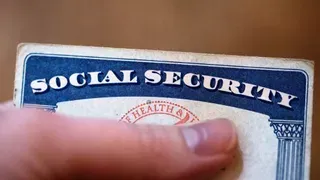May 21, 2012
CDC to Baby Boomers: Get Tested for Hepatitis C
Jason St. Amand READ TIME: 3 MIN.
ATLANTA (AP) - For the first time, the government is proposing that all baby boomers get tested for hepatitis C.
Anyone born from 1945 to 1965 should get a one-time blood test to see if they have the liver-destroying virus, the Centers for Disease Control and Prevention said in draft recommendations issued Friday.
Baby boomers account for more than 2 million of the 3.2 million Americans infected with the blood-borne virus. It can take decades to cause liver damage, and many people don't know they're infected.
CDC officials believe the new measure could lead 800,000 more baby boomers to get treatment and could save more than 120,000 lives.
"The CDC views hepatitis C as an unrecognized health crisis for the country, and we believe the time is now for a bold response," said Dr. John W. Ward, the CDC's hepatitis chief.
Several developments drove the CDC's push for wider testing, he said.
Recent data has shown that from 1999 to 2007, the number of Americans dying from hepatitis C-related diseases nearly doubled. Also, two drugs hit the market last year that promise to cure many more people than was previously possible.
The virus can gradually scar the liver and lead to cirrhosis or liver cancer, and is the leading cause of liver transplant. It can trigger damage in other parts of the body as well. All told, more than 15,000 Americans die each year from hepatitis C-related illnesses, according to the CDC.
The hepatitis C virus is most commonly spread today through sharing needles to inject drugs. Before widespread screening of blood donations began in 1992, it was also spread through blood transfusions.
Health officials believe hundreds of thousands of new hepatitis C infections were occurring each year in the 1970s and 1980s, most of them in the younger adults of the era - the baby boomers. The hepatitis C virus was first identified in 1989.
Today, about 17,000 infections occur annually, according to CDC estimates.
About 3 percent of baby boomers test positive for the virus, the CDC estimates.
Of those, some manage to clear the infection from their bodies without treatment, but still have lingering antibodies that give a positive initial test result. That's why confirmatory tests are needed.
Still, only a quarter of infected people are that lucky. Most have active and dangerous infections, Ward said.
The agency's current guidelines recommend testing people known to be at high risk, including current and past injection drug users.
But as many as a quarter of infected baby boomers say they don't recall engaging in a risky behavior.
It's possible some people were infected in ways other than injection drug use or long-ago blood transfusions. Some experts say tattoos, piercings, shared razor blades and toothbrushes, manicures and sniffed cocaine may have caused the virus to spread in some cases.
Those kinds of experiences might not raise flags in the minds of many patients or their physicians, experts said.
A recent Harris Interactive survey of 1,000 baby boomers found other forms of ignorance about hepatitis C. Fewer than 20 percent knew they belonged to the generation most likely to be infected, and only a similar percent were aware it can be cured in many patients.
Also, only about 25 percent said they had been tested, according to the survey, done on behalf of the American Gastroenterological Association and Vertex Pharmaceuticals, which makes one of the hepatitis C medications.
Currently, many baby boomers learn of their infection almost by accident, like when they donate blood or get a physical exam for a life insurance policy, said Dr. Ryan Ford, an Emory University physician specializing in hepatitis care.
He and other physicians celebrated the CDC's announcement.
"It's a long awaited and very much hoped for development that I believe will save lives," said Dr. Ira Jacobson, a hepatitis expert at New York Presbyterian/Weill Cornell Medical Center
The new testing recommendation is expected to become final later this year.





